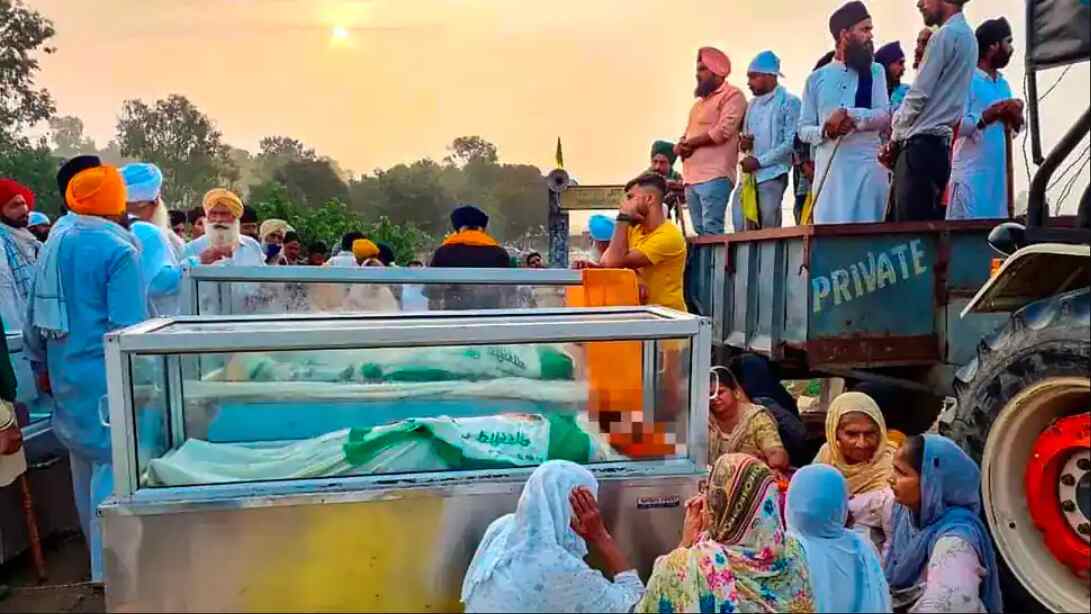A tale of two narratives

The resolution of the blatant violence in Lakhimpur Kheri leading to the death of eight persons has come through a truce assuring a compensation of Rs 45 lakh to the families of killed farmers. Of course, there have also been the promises of top-level judicial probe and job opportunities for affected families. This could hardly be called a satisfactory solution — given that no arrest has been made as of now in what could be called an outrightly clear case of criminal breach of law in the state. Quite shockingly, this truce was facilitated by none other than Rakesh Tikait who stood firm and hard against the BJP-led Central government over the past year. It is hard to conceive what plans Rakesh Tikait has for the future of farmers' protest and around taking up of the recent brutal incident. This leaves us with a critical question: Has the farmers' protest come to be associated with a single face value? The fact that the BKU leader has managed to strike a deal through closed-door negotiations around the killing of four farmers is indeed a worrying picture. It may be for good or bad, but the air of uncertainty and veil of translucency around the negotiations is something that is not appropriate. It may be argued here that farmers' protest, in its larger form, must be free from individual or organizational power centres — though accepting their help wherever offered. The hit and run case of Lakhimpur Kheri is compounded by very layered and complex aspects. Firstly, it is being seen as a tipping point of the largest protests in contemporary India — that of farmers. Secondly, the horrifying incident has come in the backdrop of heating tensions ahead of the UP election that will set the momentum for the 2024 general elections. And thirdly, the incident is being seen as an assertion of power to trample the farm protest, in view of provocative remarks of the son of a union minister a few days ahead of the killings. He had warned 'sudhar jao, nahin to samna karwake hum aapko sudhaar denge, do minute lagega sirf'. Irrespective of the fact whether he was personally involved in the incident or not, such a statement presents a larger question of misuse of power and the arrogance of the same. The situation is further heated up in Uttar Pradesh with 'unlawful' detaining of Priyanka Gandhi Vadra and blockade for other opposition leaders from entering into the crime area. Apart from the compensation offer, the senior executive officers have assured that the accused will be arrested within seven days. It must however be noted that the speed and direction of the investigation may be impacted by the narratives set in the aftermath of the killings. The Lakhimpur Kheri case has now become a tale of two narratives — symbolically represented by the use of contradictory term 'assailants' against the farmers. The horrible narrative of three SUVs mowing down peaceful protestors has come to be contested by the narrative of 'assailants' attacking the SUVs resulting in an accident leading to the death of the farmers. There is no denying the fact that the accused is entitled to present defending arguments. While it is up to the probing authority to clear the clutter through the factual and objective investigation, the building of chaos — sometimes deliberately — through a clash of narratives and counter-narratives creates a procedural impasse to the criminal justice system. This has been a general trend lately in a range of cases — from Delhi riots to JNU violence. In the present case, we can't run away from the fact that the crime incident has taken a political colour; and reality will have to be looked at through a political lens while legal actions take the due course. Political parties will feed the fodder to gullible masses to have their prospects stronger in the run-up to UP assembly elections. The political party which is at the receiving end may try to prolong the investigations — affecting the larger cause of justice to the deceased families. The Congress party has upped its ante against the BJP in the state, and the detention of opposition leaders will only invigorate the situation. The worst outcome of the current unfolding in Uttar Pradesh could be political blame games overshadowing the cause of justice. The quest for justice, in this case, is not just limited to the families of eight deceased — including four farmers — but all the farmers who have toiled hard to put up a coordinated fight against the farm laws which they perceive are contrary to their interests. It is related to the much larger quest of being allowed to stand for one's own cause. It is related to the quest of being allowed to protest — free from direct and indirect restraints. It will be a challenging task for the state administration to decouple the issue from politics and carry out an objective investigation into the process. It would be an exemplary gesture if the party in power raises itself from politics to punish the culprits rapidly in the strictest possible manner. It can further only be hoped that opposition parties carry on their task of building pressure with empathy towards the families of the deceased. Justice should prevail over everything.



